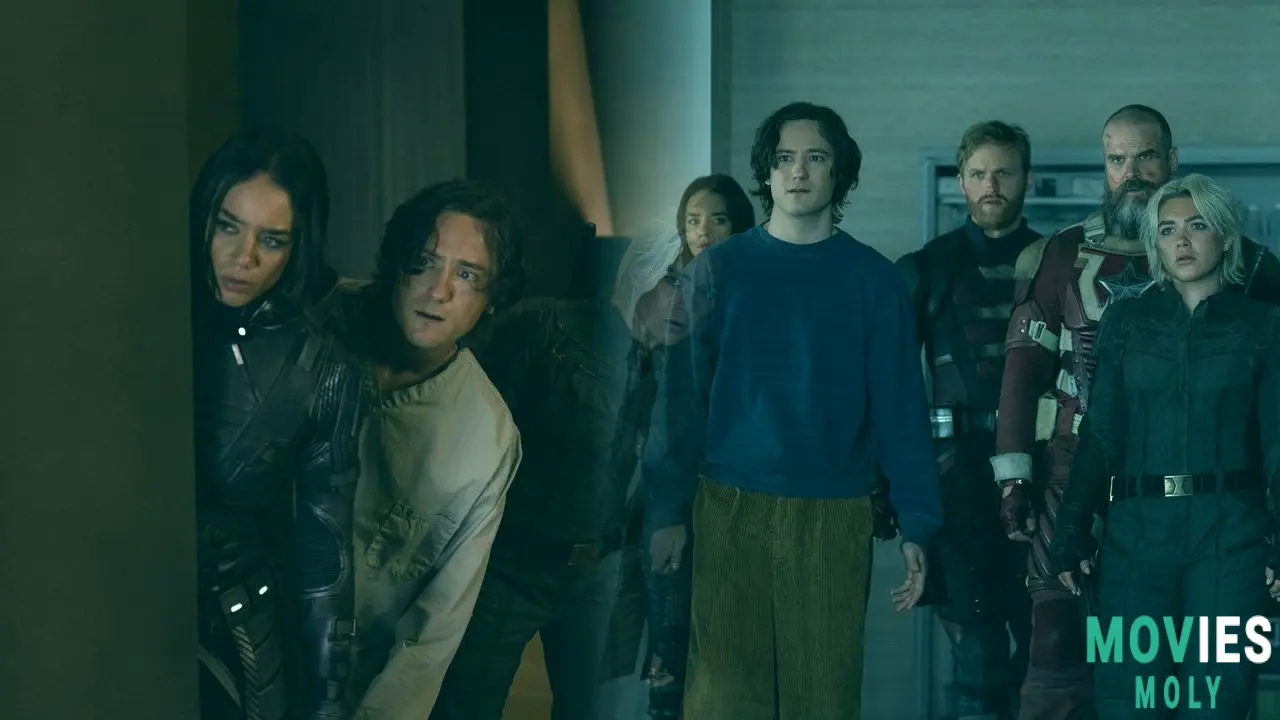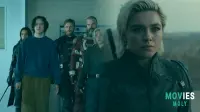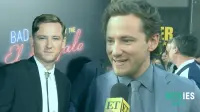By Nicolas Ayala
Marvel Studios’ latest entry into the MCU — Thunderbolts* — isn’t just a film about a squad of misfit antiheroes. It’s a bold emotional pivot for the franchise, shining a spotlight on mental health, redemption, and the messy middle ground between heroism and villainy. With an asterisk in the title that teased more than just punctuation play, Thunderbolts* delivers one of Marvel’s most grounded yet chaotic ensemble stories to date, and somehow, it lands with the grit and heart that many recent blockbusters have missed.
The asterisk in Thunderbolts* isn’t just a symbol—it’s part of the storyFor months, Marvel kept fans guessing about the meaning behind the * in Thunderbolts*. The marketing campaign leaned into the mystery, and theories ran wild—was it a tease for Thunderbolt Ross? A nod to some deeper comic lore? As it turns out, the explanation is delightfully meta and surprisingly emotional. The team’s name doesn’t come from some grandiose world-saving origin or connection to Ross (despite early script drafts and casting rumors). Instead, it harks back to Yelena Belova’s childhood—a team name from her youth soccer days: the West Chesapeake Bay Thunderbolts. A team that never won a game.
It’s a small, human detail that perfectly encapsulates the film’s tone. These aren’t legends stepping into fame. They’re underdogs, misfits, and broken people trying to find a win, any win, in a world that keeps writing them off. That Marvel turned what could have been a forced branding moment into a genuine character beat is a testament to the filmmakers’ understanding of this team’s emotional core.
Marvel’s underpowered squad shines through emotional honesty and character work
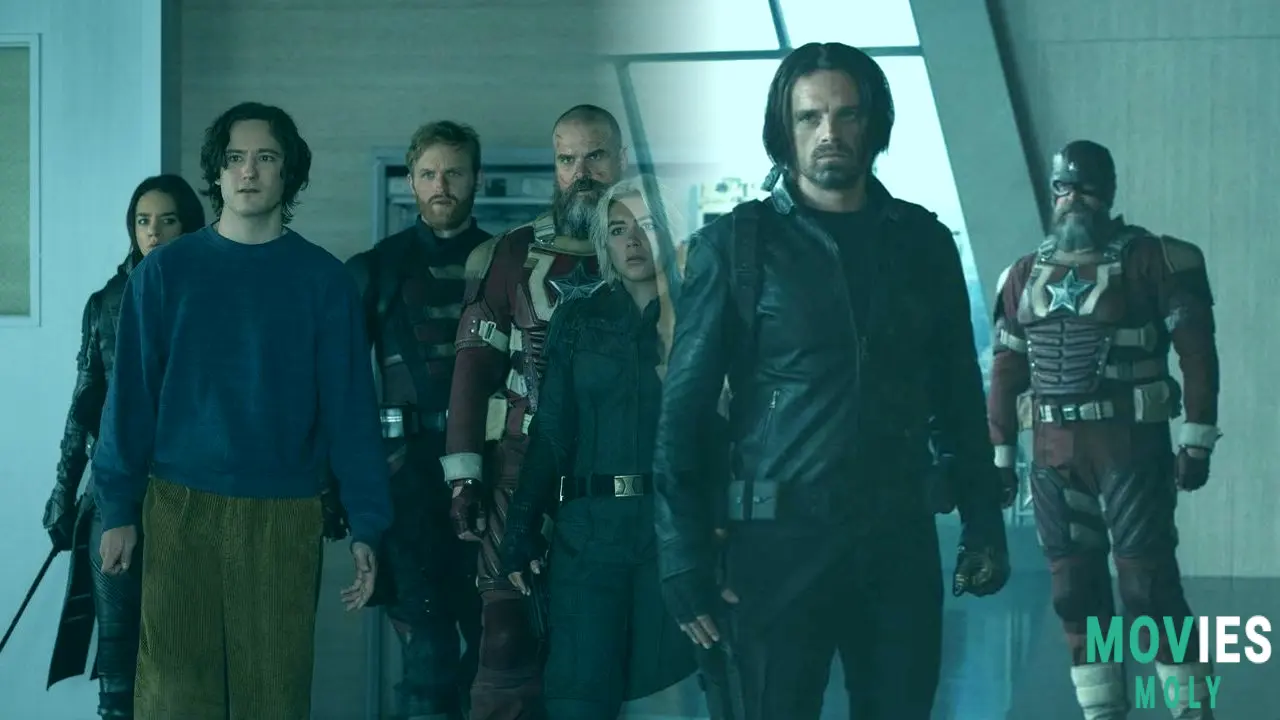
What makes Thunderbolts* work isn’t the spectacle (though there’s plenty of that), but the ensemble. Florence Pugh’s Yelena Belova leads a group that includes Sebastian Stan’s Bucky Barnes, David Harbour’s Red Guardian, Wyatt Russell’s U.S. Agent, Hannah John-Kamen’s Ghost, and Lewis Pullman’s Bob—aka Sentry. Most of these characters have been through the MCU wringer, and here, they’re given space to breathe, stumble, and grow.
Yelena’s journey is particularly poignant. Haunted by Natasha’s death and her own sense of purposelessness, she grapples with what it means to be a hero—or even to matter. John-Kamen’s Ghost, with her ethereal presence, masks a painful past of experimentation. Bob’s Sentry, often the punchline of the group, fights not only supervillains but his own inner demons. And Bucky, forever the soldier, searches for meaning beyond his redemptive arc.
These characters aren’t just fighting villains; they’re fighting themselves. And that internal battle makes every punch, every mission, and every failed team-building moment hit harder. It's rare to see a Marvel film lean so heavily into emotional dysfunction and come out the other side feeling... real.
Valentina’s manipulation turns into a commentary on media and hero branding
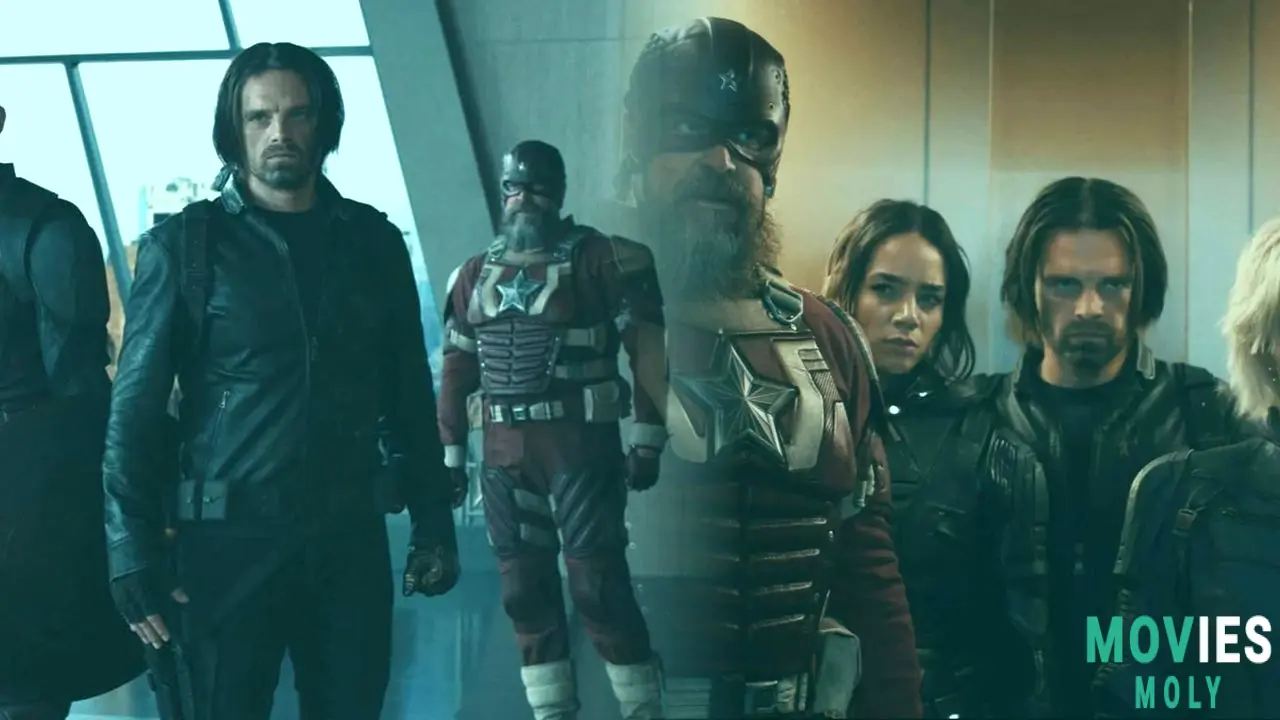
Olga Kurylenko’s Valentina Allegra de Fontaine is as sharp and manipulative as ever, using the team for covert ops until they become too dangerous to control. But when the Thunderbolts* save New York from Bob’s unleashed alter-ego, Void, Valentina seizes the moment—not to save the world, but to sell a narrative. She brands them as the “New Avengers,” weaponizing public perception to legitimize a team she once sought to eliminate.
This twist isn’t just plot convenience; it’s smart commentary. Marvel has often explored media manipulation through figures like Tony Stark, and Valentina’s PR gambit continues that thread. She recognizes that image is power, and these misfits are only valuable if the world believes they’re heroic. It's a sharp mirror to how superhero identities are crafted—not in the lab, but in the newsroom.
The post-credits scene teases legal battles and more identity crises ahead
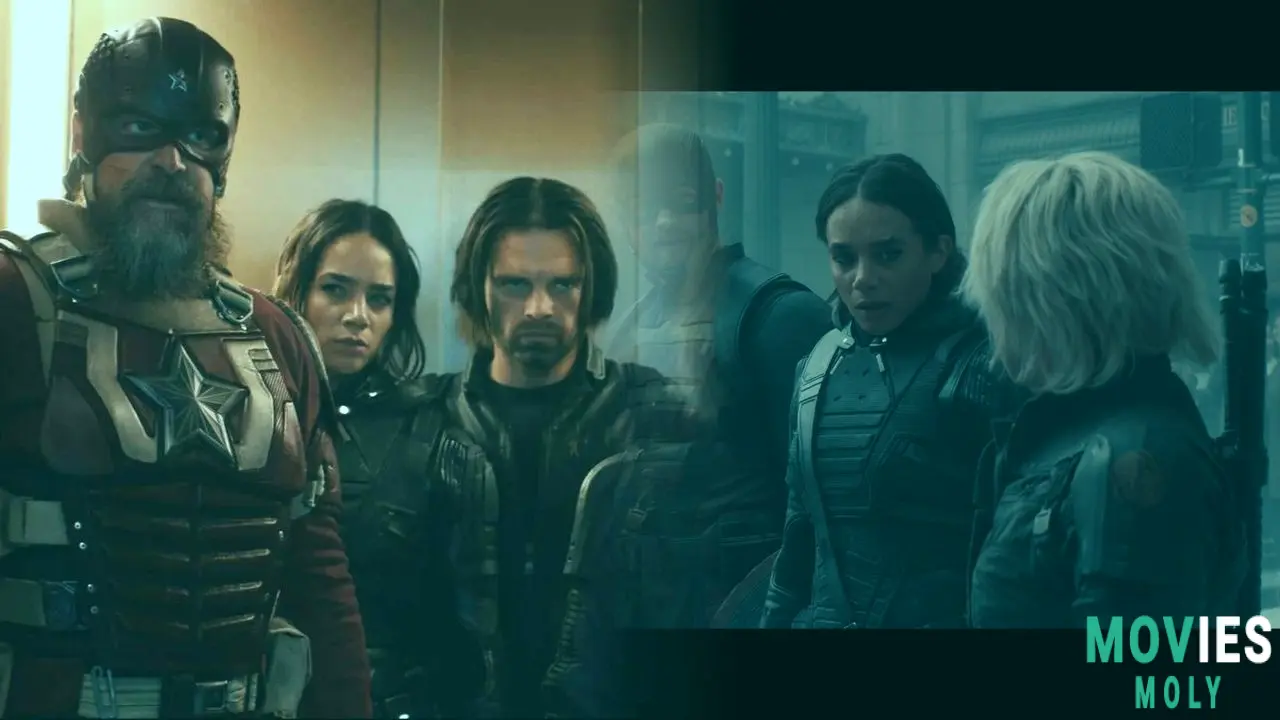
In true Marvel fashion, the post-credits scene adds a deliciously mundane twist to the superhero saga: Yelena and the team are being sued by Sam Wilson for “New Avengers” trademark infringement. It’s a small moment of levity that also underscores a bigger theme of the film—identity. What does it mean to be an Avenger? A hero? A brand? And if these guys aren’t that, what are they really?
Red Guardian's off-the-cuff solution to rebrand as “New Avengerz” with a 'z' is goofy—but that’s the point. They're improvising not just in the field, but with their very identities. And that chaos feels oddly... authentic.
Thunderbolts* isn’t about legacy—it’s about finding purpose in the aftermath
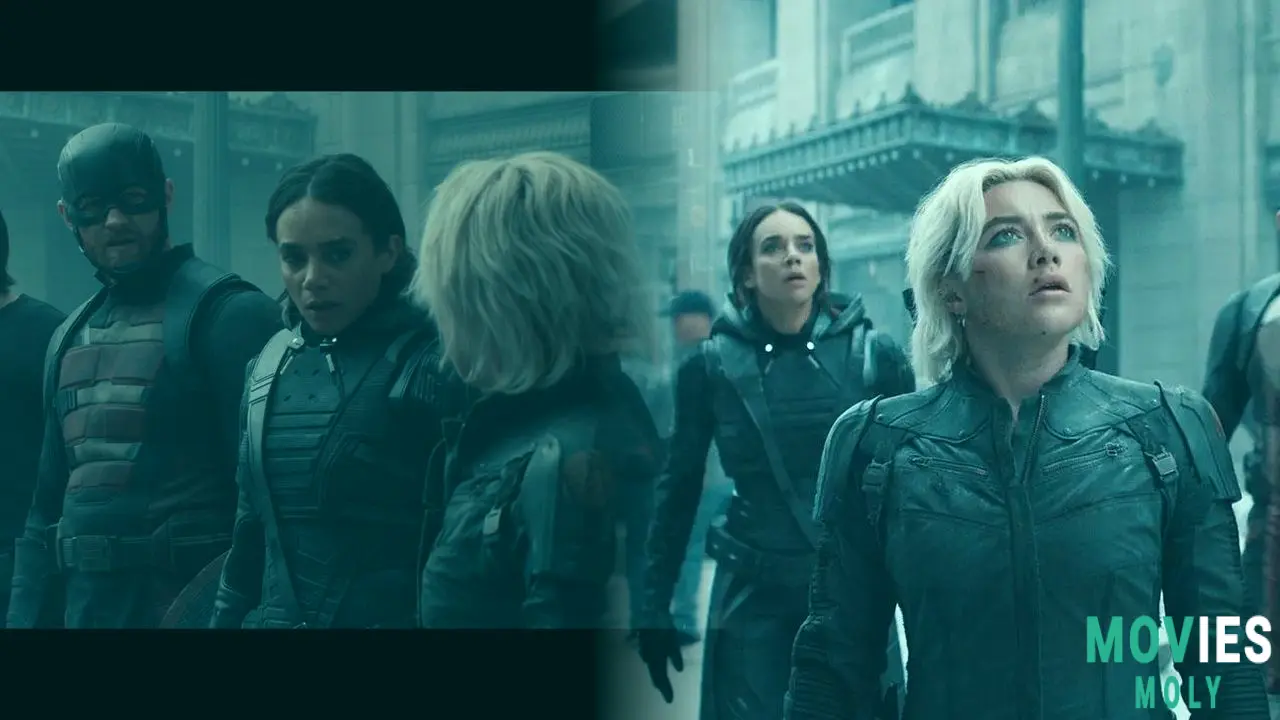
This is a movie about fallout—emotional, physical, and reputational. It doesn't require deep comic knowledge, and that’s part of its charm. Marvel Studios trusts the audience to connect with characters like Yelena, Bucky, and Ghost, not because of their past glories, but because of where they are now. Broken, bruised, but still fighting for something. Even if that something is just not to be forgotten.
With a 90% Rotten Tomatoes score and a fanbase that’s hungry for substance beneath the CGI, Thunderbolts* stands as proof that Marvel still has room to experiment within its formula. It’s gritty, it’s chaotic, it’s occasionally uneven—but it’s also heartfelt, weirdly inspiring, and most importantly, it cares about the people behind the masks.
Marvel may not be calling these guys the New Avengers forever—but for now, they’ve earned their moment in the sun. And that’s more than asterisk-worthy.

